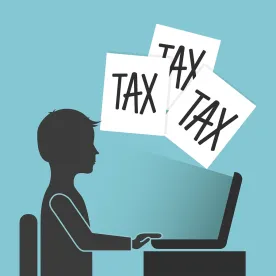The outlook for comprehensive tax reform legislation has changed dramatically. The release of the Unified Framework for Tax Reform, and a realistic path forward for an FY 2018 Budget Resolution with budget reconciliation instructions providing for tax reform, has changed the political outlook. Based on our work on tax reform over the last few years, we are more positive about the prospects for tax reform in this Congress than we have been in recent years. Lawmakers are making decisions on the details of tax reform, and companies that are concerned about the impact of the various proposals on their businesses should be talking with Members of Congress and staff now.
Over the last six months, Senate Majority Leader McConnell, House Speaker Ryan, Finance Chairman Hatch, Ways and Means Chairman Brady, Treasury Secretary Mnuchin, and National Economic Council Director Cohn (a group known as the Big Six) have been negotiating the framework for how to move forward on tax reform. The framework is based upon four principles for tax reform: simplify the tax code to make it fair and easy to understand; reduce taxes on “hard-working Americans”; encourage job creation for American workers by leveling the playing field; and reinvest back into the American economy the trillions of dollars held by American companies outside the United States.
While the Framework includes several final decisions on tax issues, the details for achieving comprehensive tax reform are being left up to the House Ways and Means and Senate Finance Committees. For businesses, the Framework would:
-
Domestic
-
Reduce the top corporate tax rate from 35 percent to 20 percent and repeal the corporate AMT;
-
Create a maximum 25% tax rate on pass-through business income with measures to prevent re-characterization of personal income into business income;
-
Allow five years of full expensing for depreciable assets other than structures followed by a to-be-defined level of expensing with accelerated depreciation on the remaining basis in assets;
-
Create a partial limitation on the deduction for net interest expense of corporations leaving the committees to consider the appropriate treatment of interest for non-corporate taxpayers;
-
Repeal the domestic production deduction (Section 199);
-
Preserve the R&D tax credit and the low-income housing tax credit while other business credits would be repealed, although the committees have discretion to retain other business credits to the extent budgetary limitations allow; and
-
Modernize the special tax regimes governing specific industries and sectors to reflect economic reality and reduce the opportunity for tax avoidance.
-
-
International
-
Create a territorial tax system with a 100% exemption for dividends from foreign subsidiaries in which the US parent owns 10% or more;
-
Provide a one-time deemed repatriation for accumulated foreign earnings under the old system at one rate for earnings held in cash or cash-equivalents and a lower rate for earnings held in illiquid assets with the Committees determining the rates; and
-
Include rules to protect the US tax base by taxing at a reduced rate and on a global basis the foreign profits of US multinational corporations from “tax havens” with the Committees incorporating rules to level the playing field between U.S.-headquartered parent companies and foreign-headquartered parent companies.
-
The Republican leadership intends to move quickly on tax reform over the next three months, with a goal of completing all action on tax reform before Congress adjourns for the holidays. This is an optimistic scenario requiring House Ways and Means Committee mark-up the week of October 30th, House floor consideration and passage before Thanksgiving, Senate Finance Committee mark-up the week of November 6th or 13th, Senate floor consideration the week of November 13th or November 27th (depending on House passage), conference negotiations in early December, and passage by the House and Senate before they adjourn for the year. This scenario also would require herculean effort by the staff of the tax-writing and budget committees, Legislative Counsel, and the Joint Committee on Taxation to get legislation and amendments written and scored.
A more likely scenario for tax reform would have the House Ways and Means Committee mark-up before Thanksgiving, House floor consideration and passage before Congress adjourns for the holidays, Senate Finance Committee mark-up in late-January, Senate floor consideration in early-to mid-February, conference negotiations in late February or early March, and passage by the House and Senate by the end of March. This scenario provides a more realistic timeframe for the staff of the tax-writing and budget committees, Legislative Counsel, and the Joint Committee on Taxation to get legislation and amendments written and scored at each phase in the process.
In either scenario, decisions on the details of tax reform are being made in the short-term. For companies concerned about the impact of the various proposals on their business, now is the time to be talking with Members of congress and their staff.




 />i
/>i

